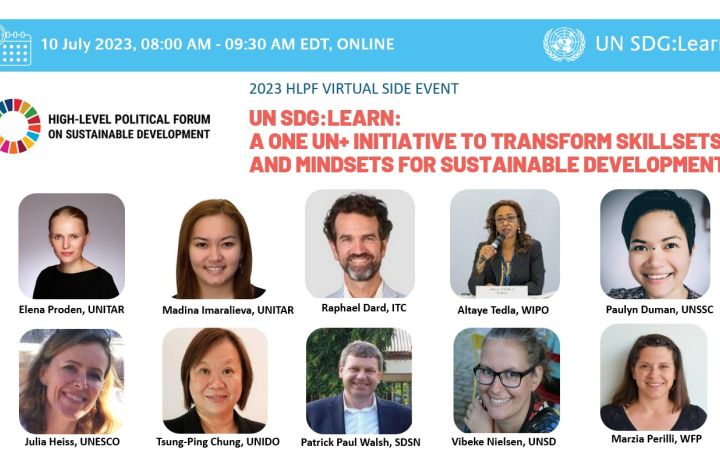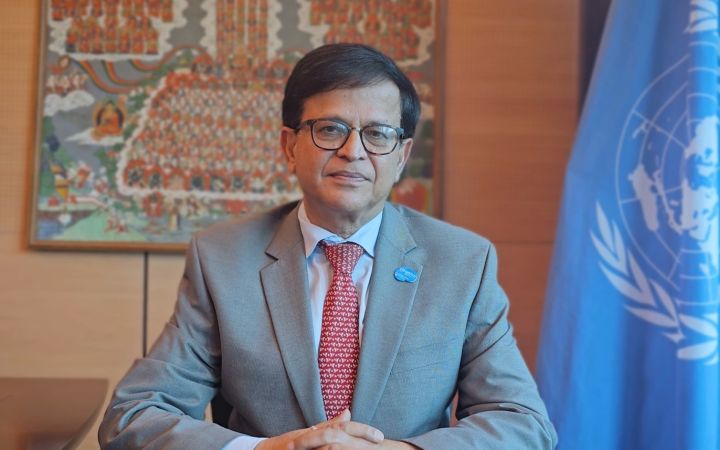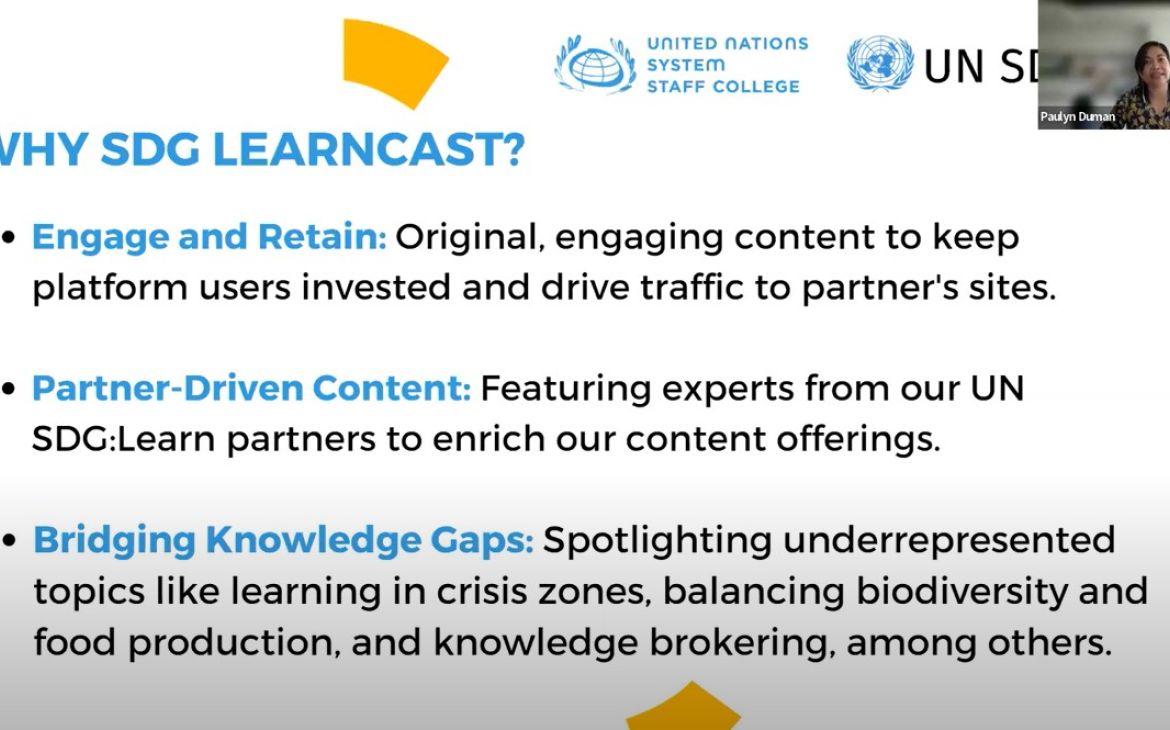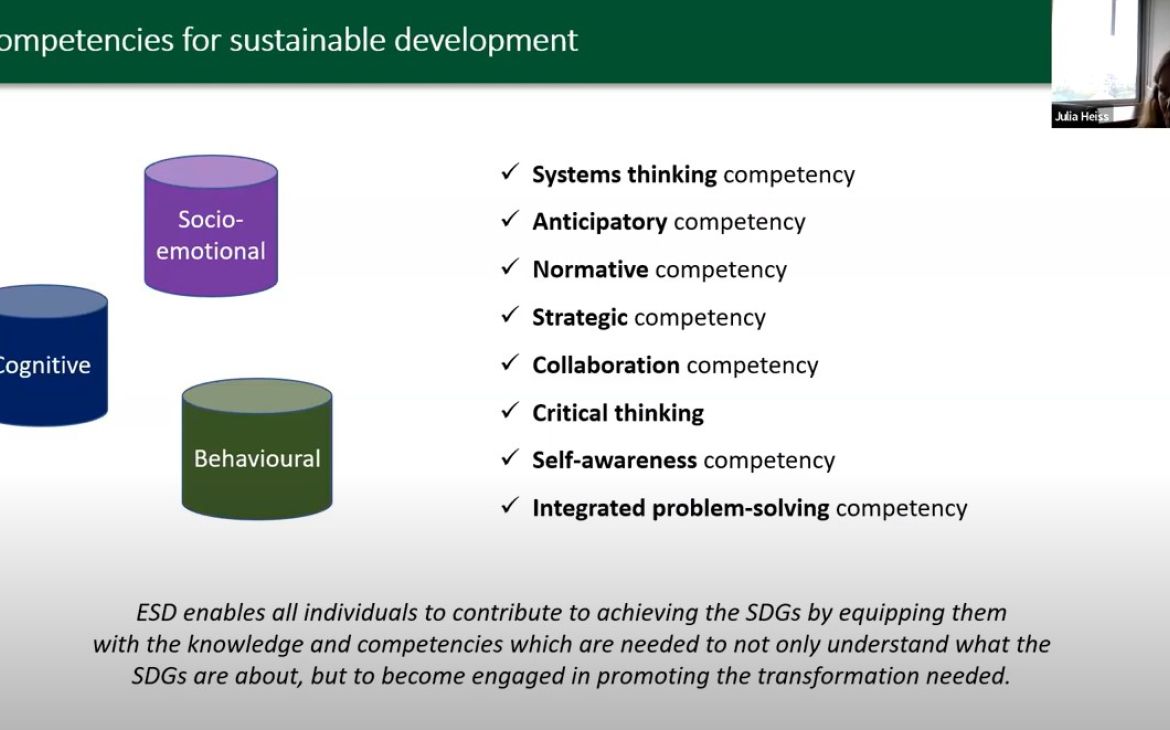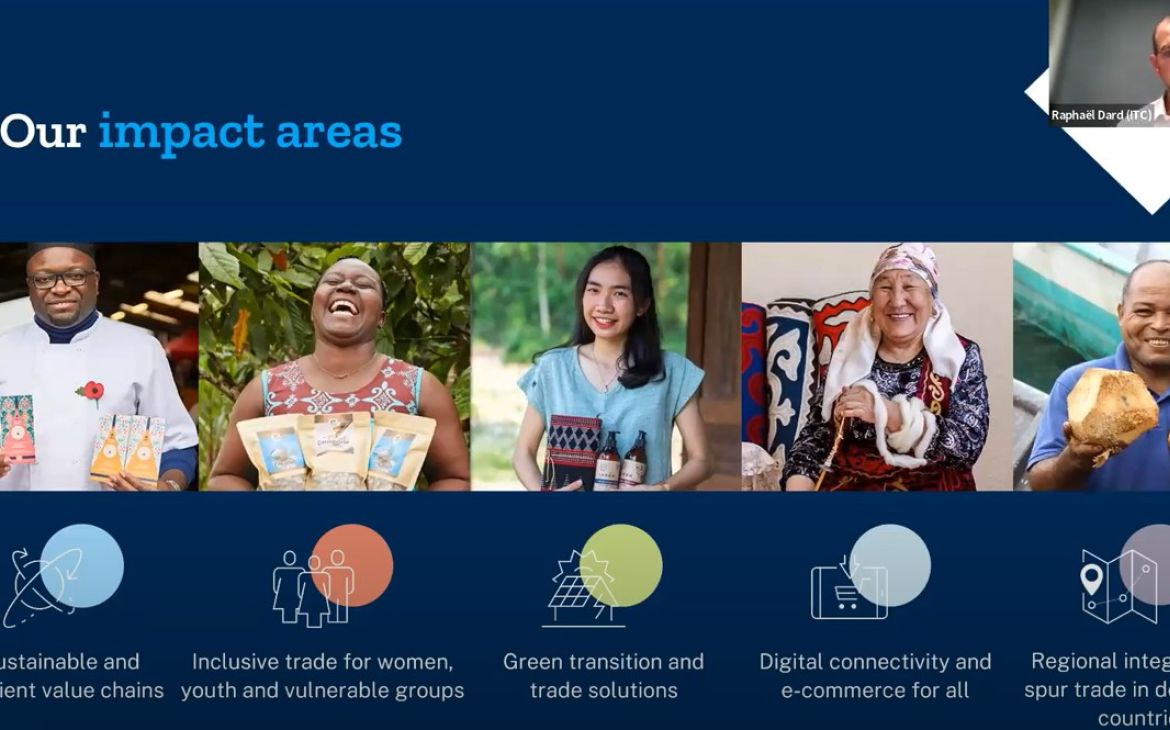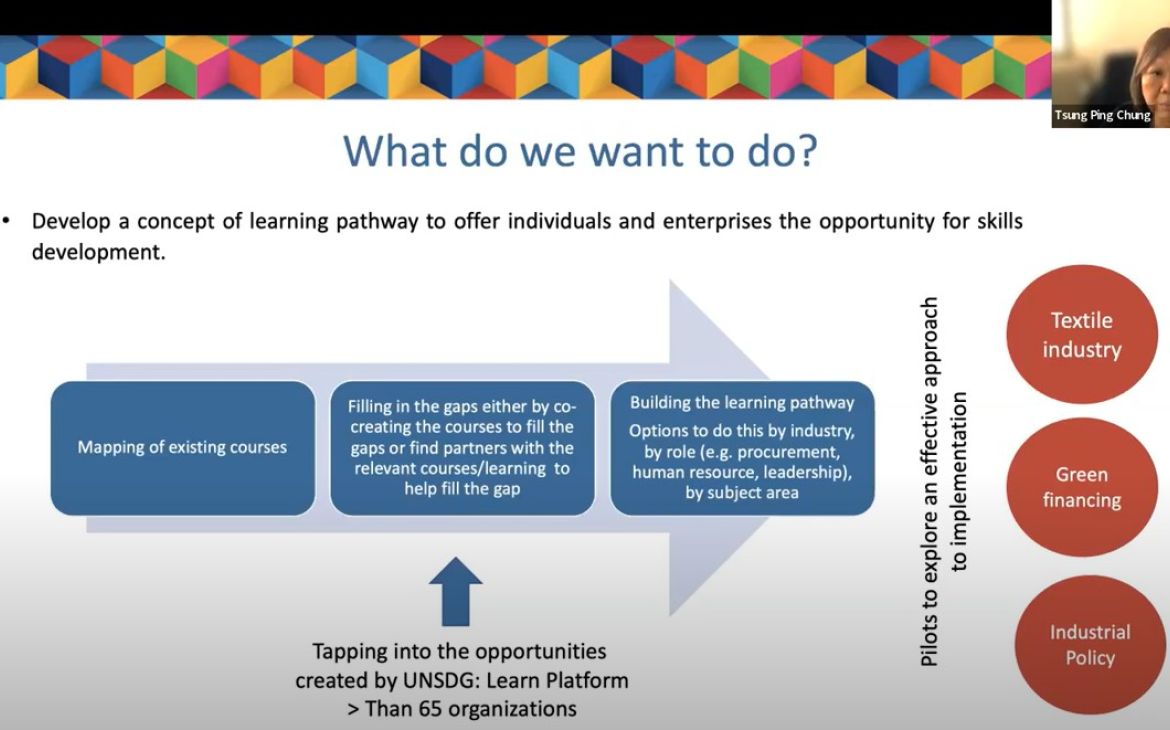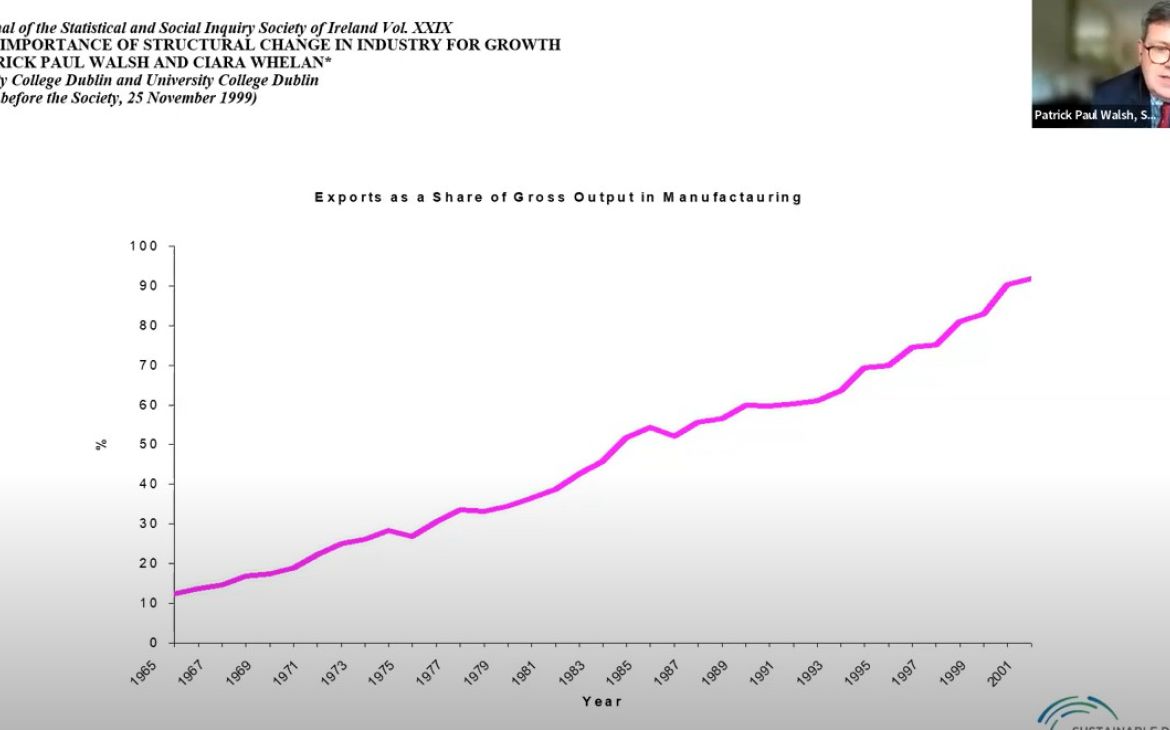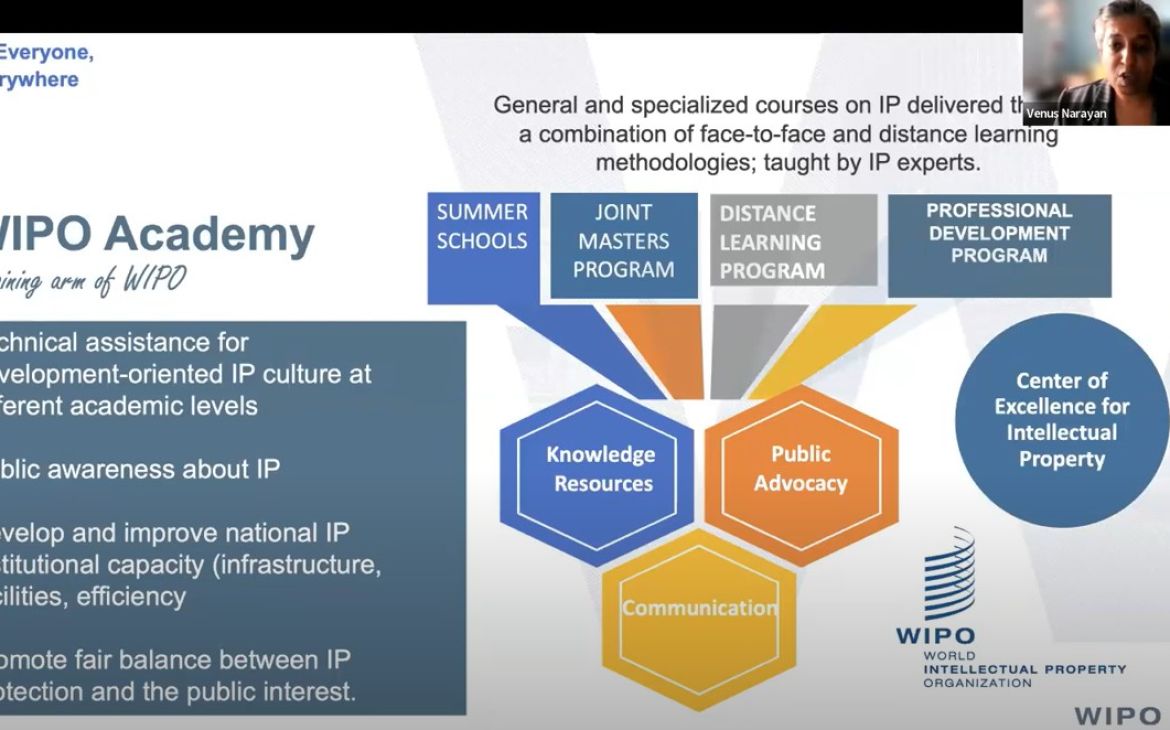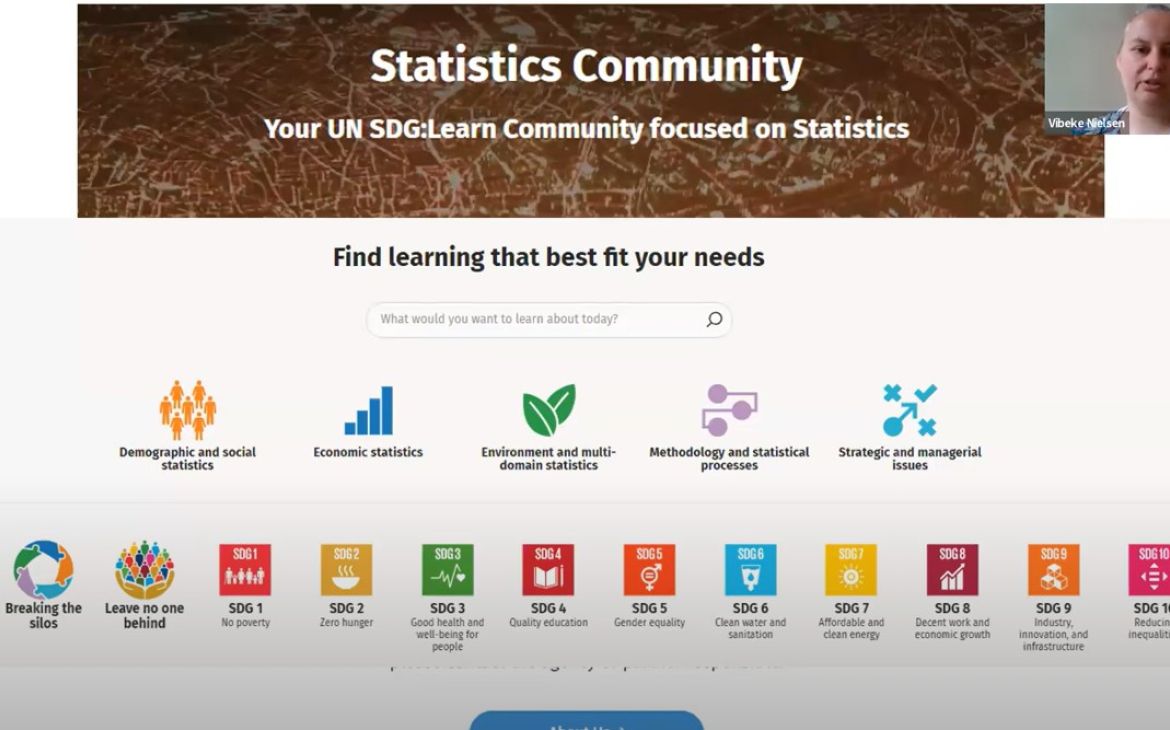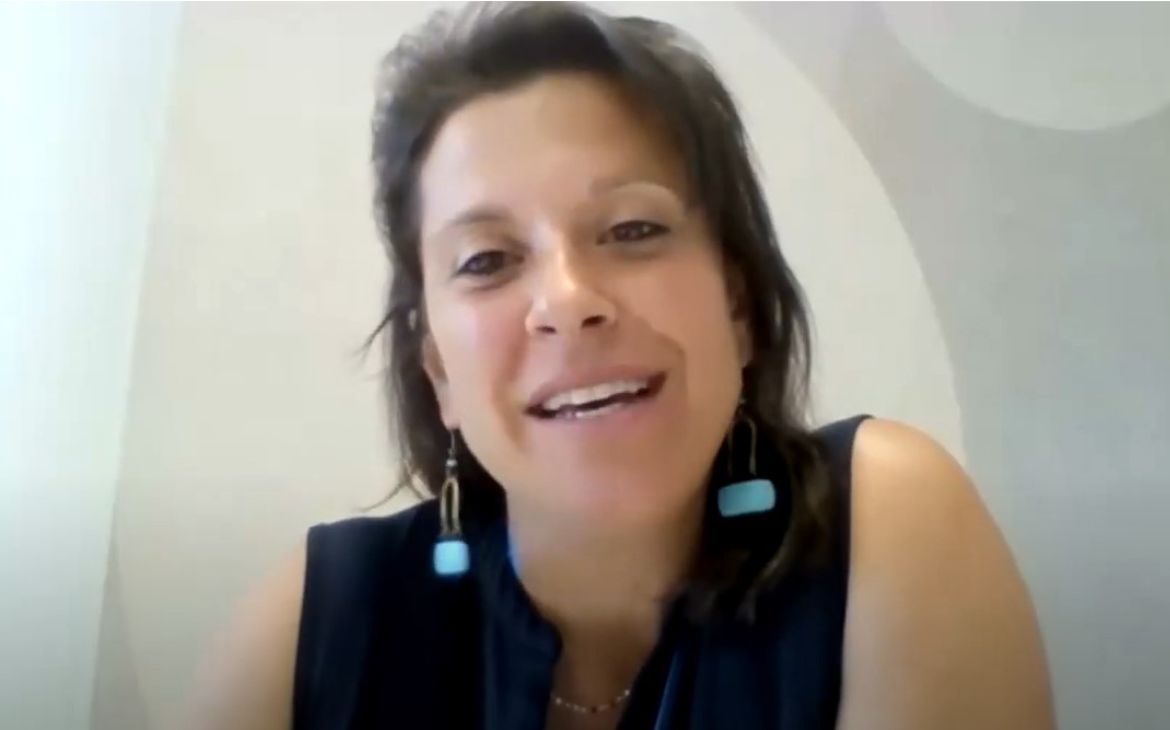Sustainable development is ultimately about changing the ways we think and do things in our private and professional lives. It requires that all people around the world benefit from learning opportunities that can empower them to promote this change. UN SDG: Learn was created in 2019 to respond to this challenge by making the available learning from UN and other partners easily accessible around the world and by helping learning providers broker partnerships to develop new services and meet the needs of diverse constituencies.
10 July 2023, New York, USA - UN SDG: Learn partners teamed up for a virtual side event during the 2023 High-Level Political Forum on Sustainable Development (HLPF) on the following theme: "UN SDG:Learn: One UN+ initiative to transform skillsets and mindsets for sustainable development”. The main focus of the event was about the importance of education in driving change and empowering individuals for sustainable development. UN SDG: Learn partnership, which aims to improve access to quality learning opportunities worldwide and promote sustainable and inclusive development, is an example of the One UN+ approach to addressing this challenge that no single entity could meet alone.
UN SDG: Learn is a comprehensive learning platform with close to 500,000 users. Over 4 years, it has expanded from being mostly a gateway to becoming a space for knowledge generation and sharing, synergies and collaboration. Beyond offering insights through its blog and podcast series, it now offers dedicated spaces for professional communities to organize access to learning, collaborate and harmonize approaches. These include the Statistics community led by the Global Network of Institutions for Statistical Training (GIST) and Inter-Agency Expert Group on SDG indicators (IAEG-SDGs), the Business community by the UN SDG: Learn Task Force SDG4Bsuiness, the Evaluation community by the UN Evaluation Group (UNEG), and Women2Lead community by UNITAR. The new Learning Pathway feature enables partners to co-develop pathways composed of their offerings, and provide joint certification to participants.
One of the first partners that have joined the initiative, Mr. Raphael Dard, Programme Manager, Division of Market Development, International Trade Center (ITC), emphasized the importance of partnerships among learning and training providers to achieve UN SDG: Learn’s objective: help build the capacities of millions of learners worldwide. Among key action areas UN SDG: Learn should be pursuing to make a real difference and scale its work are: improving the understanding of training needs, identifying new partners, inviting partners with specific target audience needs, and fostering innovation-driven approaches to learning.
Ms. Julia Heiss, Team Leader for ESD for 2030, United Nations Educational, Scientific and Cultural Organization (UNESCO), underscored the importance of equipping all learners with the skills and competencies necessary to become active change agents. The SDG Fitness Test available on UN SDG: Learn is a useful tool for all learners wishing to assess their readiness in terms of knowledge, emotions and behaviours against UNESCO’s 8 cross-cutting sustainability competencies critical for sustainability.
“Partnerships are crucial for meeting the needs of vulnerable groups, increasing outreach to learners, and enhancing the learning experience. The objective is to promote mindset and behavioural change in support of the SDGs and strengthen the capacities of both public and private organizations.” - Mr Raphael Dard, Programme Manager, Division of Market Development, International Trade Center (ITC)
Ms Tsung Ping, Senior External Relations Officer, at the United Nations Industrial Development Organization (UNIDO) and a Chair of the SDG4 Business Task Force, discussed the learning needs of the business sector, particularly MSMEs. Several organizations - UNIDO, SDG Academy, WIPO, GGKP, ITC, WEF, Rotterdam School of Management, IOE, GRI, Deloitte, UNITAR and UNSSC – came together to brainstorm and collaborate on practical solutions to offer certified quality and accessible learning for small enterprises.
Following up on discussions around the business community, Mr. Patrick Paul Walsh, Vice President of Education/Director, SDG Academy of SDSN focused on the importance of professional training and upskilling, as well as the challenges and opportunities in transitioning to sustainable sectors. He stressed that the 2023 GSDR now incorporates an additional lever on capacity building as the aim is to bring transformation to the local level and the least developing countries. This includes learning and professional training, upskilling and reskilling. Governments and partnerships have a critical role to play in supporting the so-called “s-curved transformations” leading to a decline in unsustainable practices and industries when it comes to employment and industry sectors. The rise of sustainable practices will require a lot of political will and investment in human capital, infrastructures and policies. By drawing a parallel with export-oriented policies of selected countries in the 1980s-1990s, he pointed to huge implications of such transformations for the SME sector, employment and skillsets, including for SMEs in developing and least developed countries. Access to affordable and high-quality learning will be key to success.
“We have to be very careful in inducing the transformations in the multilateral area because when we change the nature of things towards being more inclusive and sustainable in the industrial development and transformations, it is going to have a huge impact on the whole supply chain that involve SMEs and other developing and least developed countries.” - Mr Patrick Paul Walsh, Vice President of Education/Director, SDG Academy of SDSN
The side event was also an opportunity to showcase existing and upcoming professional community sites. The statistics community site presented by Ms Vibeke Oestreich Nielsen, Inter-Regional Adviser on Statistical Training and Capacity Building and GIST Coordinator, has been active since 2020 and has been selected by the IAEG as the main gateway for all learning on SDG indicators. Drawing on the successful establishment of the statistics community site, UNEG aimed to leverage the platform for its evaluation community. Ms. Marzia Perelli, Evaluation Analyst, Capacity and Quality Unit, World Food Programme (WFP) Office of Evaluation announced the upcoming launch of the evaluation community site to be curated by UNEG based on the Evaluation Competency Framework. Lastly, a brand new Women2Lead community set up by UNITAR’s One Gender project hosts learning that aims to strengthen women’s leadership skills and provide access to knowledge on relevant topics such as economic empowerment, conflict resolution, and women’s political participation. A Women2Lead forum is a special feature of this community site enabling registered participants to share experiences and learn from others.
As UN SDG: Learn has become a major point of attraction for professional communities, the Partnership looks forward to enabling more networks to benefit from this approach. It is committed to doing more to increase the linguistic diversity of its offerings and help address the specific needs of different constituencies, including those of vulnerable population groups, by involving new partners and joining forces. A One UN+ approach to learning for sustainable development is the only way forward!


